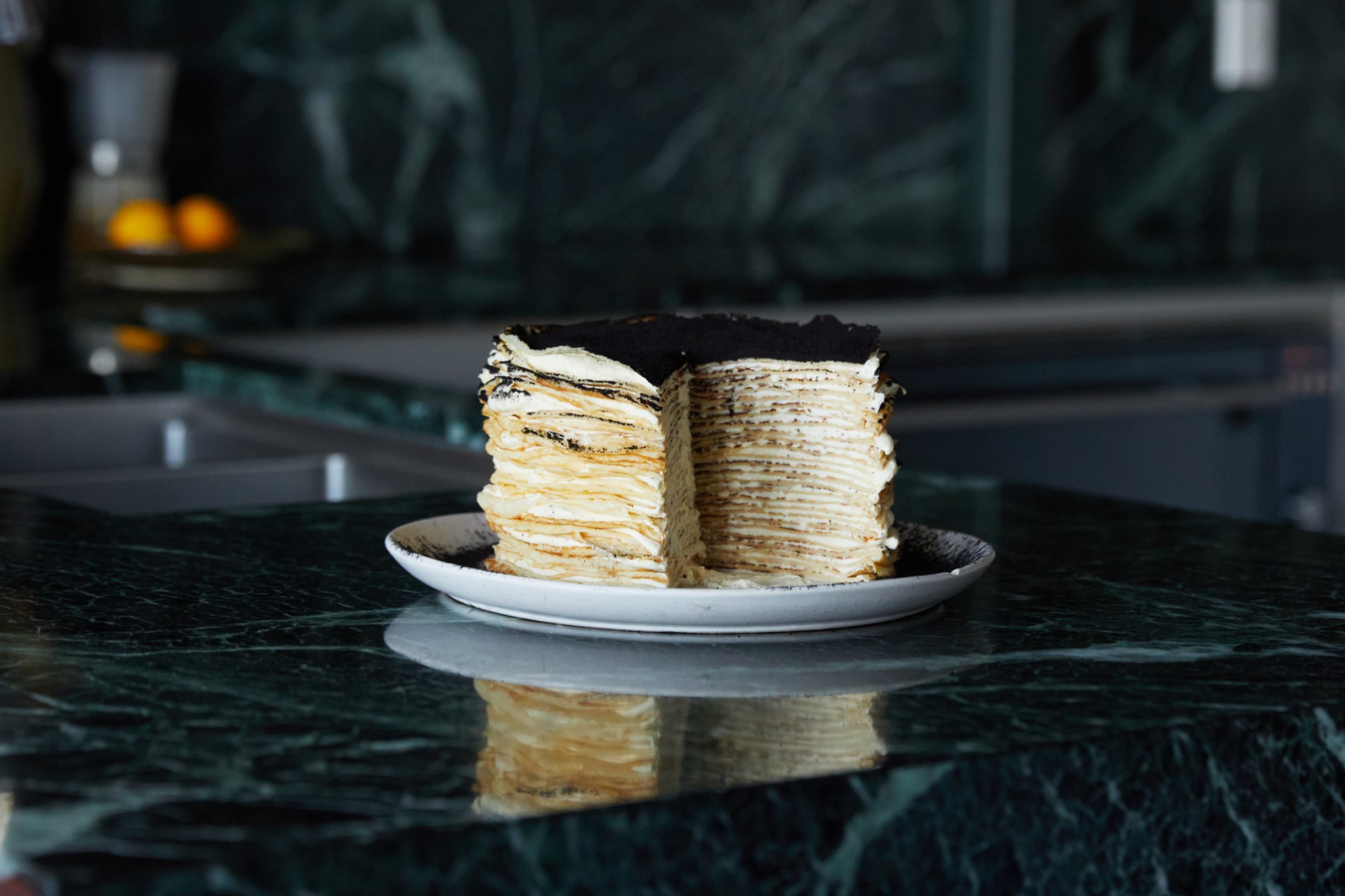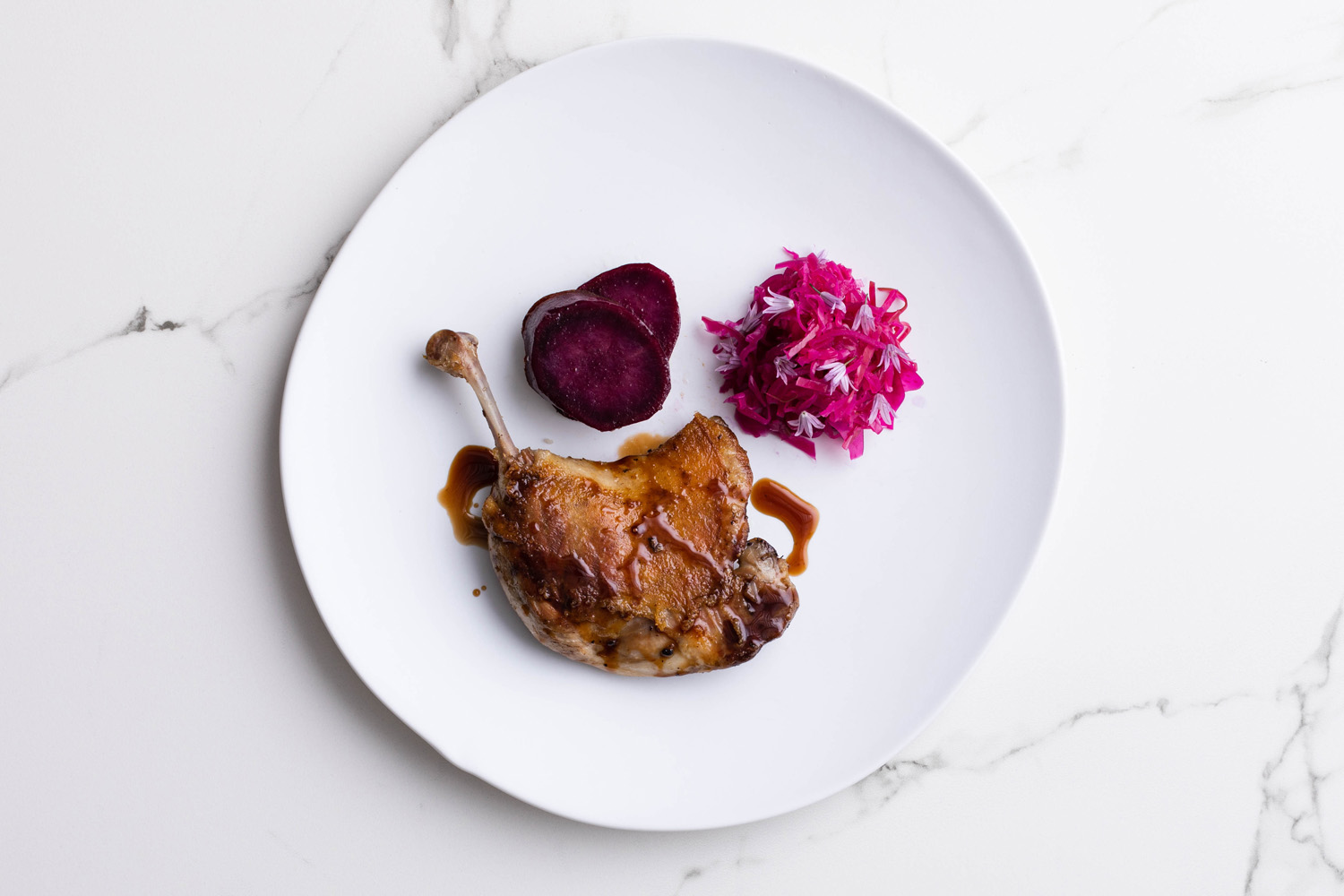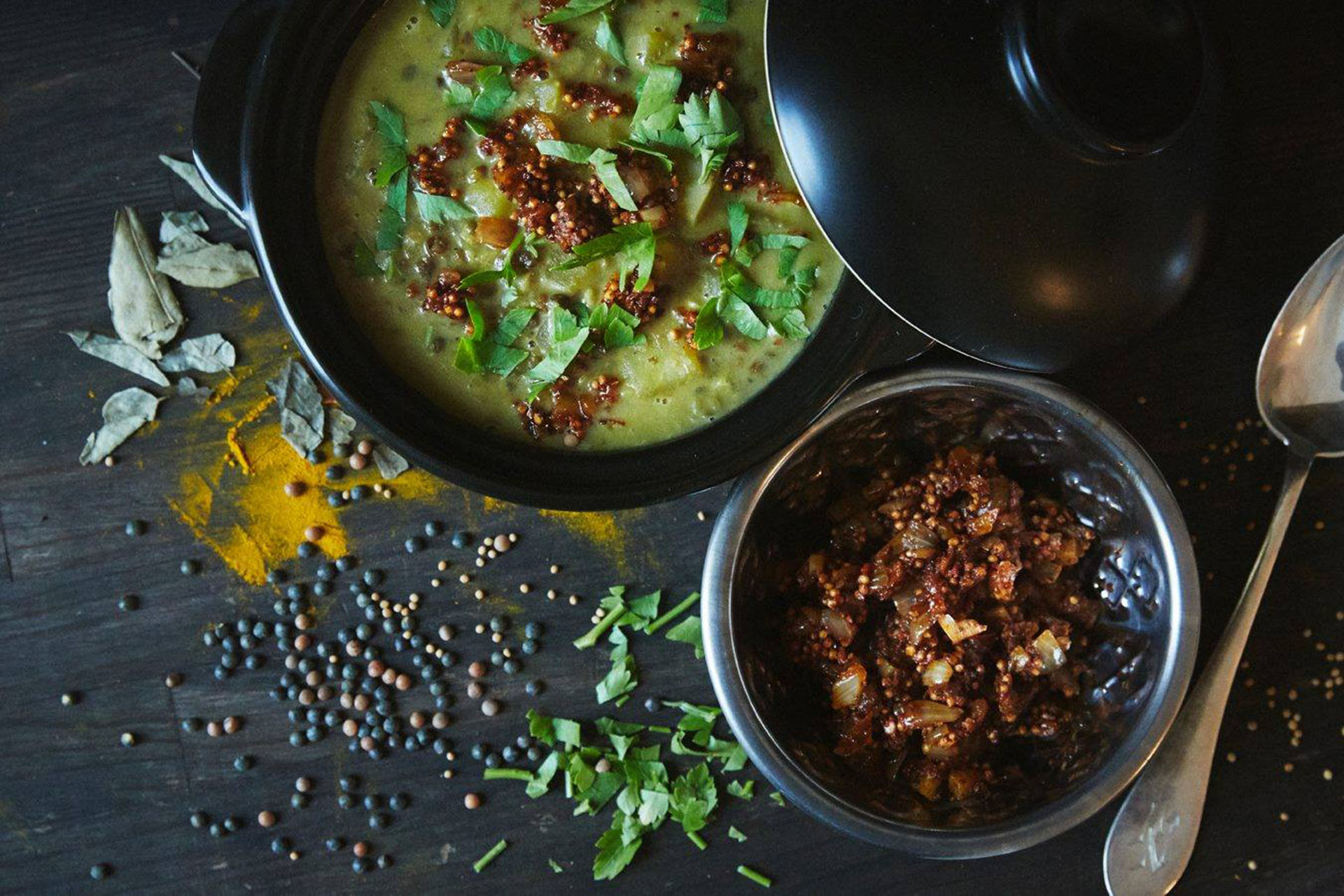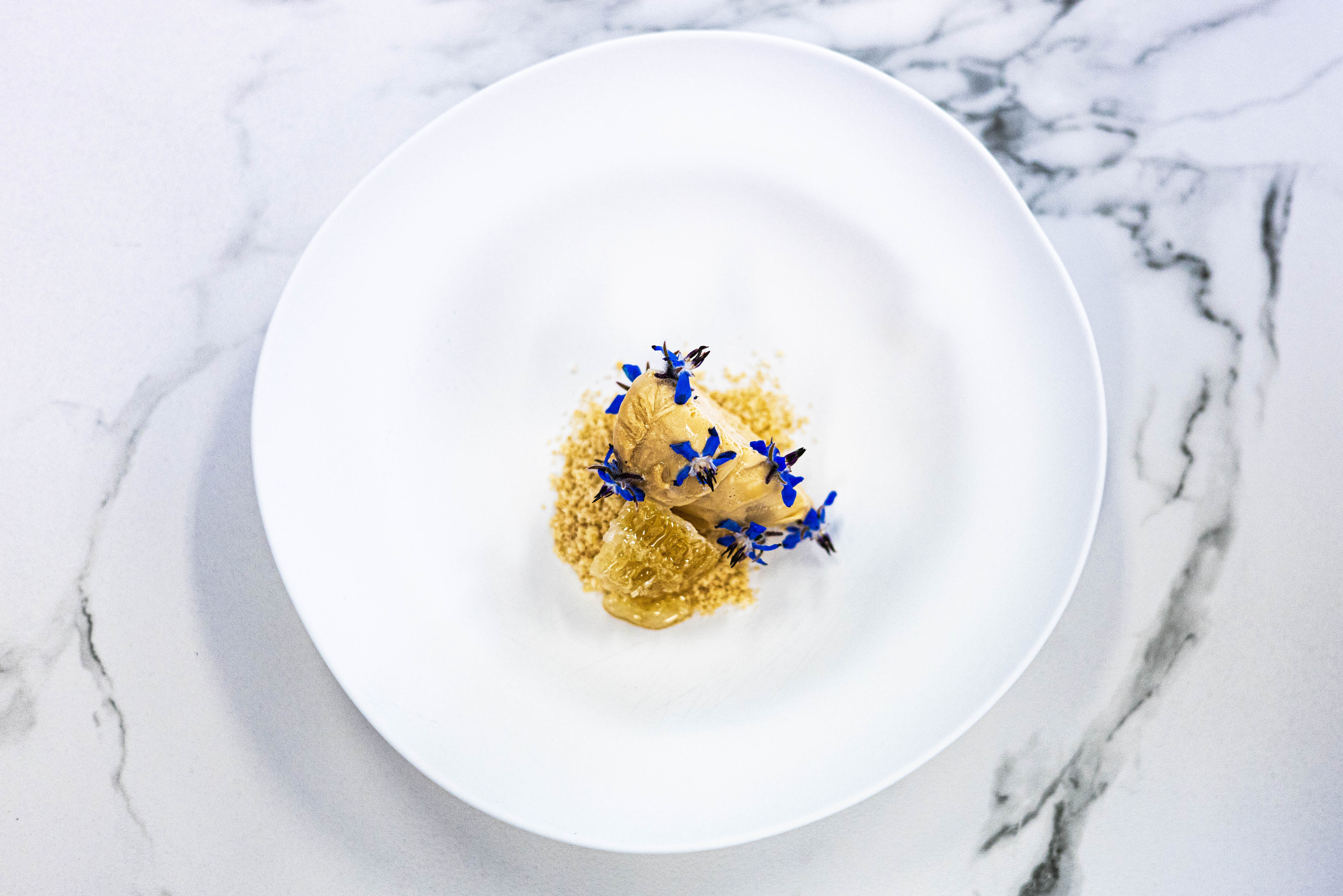
Ten Commandments of cakes by Petra Galler
Middle Eastern culinary expert Yotam Ottolenghi recently gave a special commendation to Auckland’s talented pastry chef, Petra Galler, for her latest recipe book. Titled “Butter, Butter: Embracing Abundance,” the book showcases a collection of indulgent recipes influenced by Petra’s Jewish heritage. Ever since she was a seven-year-old, Galler has harboured a deep passion for baking, dedicating herself to this craft on a full-time basis for the past five years.
Her aspiration with “Butter, Butter” is to alleviate people’s baking anxiety, as well as their apprehension towards using butter. Here, Petra shares her 10 commandments for making cakes.
Taste Your Cake Batter
I am a big believer that a lack lustre cake batter very rarely results in a sensational bake. It is this crucial stage, pre baking, that allows you to make tweaks and changes to the flavour profile. More times that I can count, I will end up adding more spices, more citrus zests, more salt than the recipe calls for, which ends up improving the flavour profile of the cake tenfold. And all thanks to a delicious wee spoonful before it hits the oven.
I know what you’re thinking; Oh raw eggs, so bad for you!
Statistically speaking, raw cake batter containing eggs runs a very very small risk of carrying bacteria. I have never once fallen ill at the hands of batter, and let me tell you; I have eaten my weight in raw cake batter a million times over.
Also, lest we forget; licking the spoon is one of the purest joys of baking . Don’t miss out on it!
Cream your butter and sugar properly
I feel like this one may be very obvious to some, but it is such a crucial part of cake making that it must be mentioned.
You will find that most recipes will tell you to cream the butter the sugar until light and fluffy; this usually takes between 3-4 minutes. By doing this, the sugar is aerating the butter and filling it with lots of tiny bubbles that will capture the gasses released by your leavener. The bubbles you have, the lighter your cake will be, and the finer and more tender the crumb.
Make sure your butter is soft and squidgy; you want it room temperature. Cold butter will not cream well at all as it won’t expand very easily and therefore won’t capture enough air.
On the other end of the spectrum, creaming butter that is too melted and warm will end in collapsed air bubbles, creating a greasy mixture and a heavy cake.
Use the best quality ingredients you can afford, but be savvy
Baking something extravagant can be a pricy affair, but knowing when to scrimp and when to splurge on your ingredients can save you pennies while still producing a truly gorgeous cake.
The main ingredients that you can cut corners with are your dry goods. I recommend hitting the bulk savings stores for items like flour, almond meal, polenta, sugar and dried fruits. This cuts costs drastically when compared to purchasing the annoyingly small bags available at the supermarket.
When it comes to the splurge, the main ingredient that can make a huge difference is good quality chocolate, especially if chocolate is the star in the recipe. I would always recommend using 60% minimum but 70% is my personal favourite.
Avoid buying the baking chocolate at all costs as these usually contain added fats and oils which can make it rather unreliable and prone to splitting.
No low fat alternatives
Baking with low-fat margarine spreads, faux sugar, skim milk; honestly it all makes me cringe.
There are a few reasons for my despair when I see this kind of behaviour.
Firstly, I think margarine should be banned altogether, mainly because it is foul but also because it reacts so poorly when used in baking cakes. These kind of spreads contain so much water, so when it melts, all of this seeps out and you are left with a dense and soggy mess.
Artificial sweeteners are just as offensive, often making your cake either overly dry and crumbly or actually just not sweet enough.
Cakes are a treat, a frivolous luxury that, I believe, are essential in life. Don’t skimp on all the good stuff; if you’re going to make a cake, I beg you, do it properly.
Salted Butter…Always
In most of my recipes, butter is the star of the show and in ALL of my recipes, I use salted butter.
While I understand the argument that non sale is preferable so you have complete control over the amount of salt, never have I ever encountered a butter in New Zealand that is overly salt forward.
In fact, the majority of cake recipes out there do not contain enough salt in my opinion.
Salt enhances and balances flavours, brings out the sweetness, and just elevates the overall flavour. You have to trust me on this.
Scales over cup measures
Whenever my friends turn to me post baking project flop, the first question I always ask is: Did you use a scale?
A good kitchen scale is so crucial; they are easy to use, inexpensive and will immediately make you a better baker.
They are a million times more accurate than cup measures, which will give you the confidence that you have followed the recipe right every time. With this conviction, you can breeze through the basics and focus on the nuances of your technique like how to properly mix your batter or how to gently fold in egg whites.
Using scales is also far neater, which the chances of a flour encrusted bench made far less likely; another important mantra actually- Messy bench, messy mind.
Scales are also a wonderful tool when making biscuits. You can weigh out each ball of dough resulting in uniform cookies that will all bake evenly.
Get familiar with a cake soak
This is such a life saver; making a dry cake moist, and a moist cake, well, even moister.
The main thing to remember is: hot cake, cold soak.
Your main options here are a simple syrup or a milk soak.
The simple syrup can be flavoured with anything that will complement the cake; citrus zest, spices, tea.
A milk soak is also a great option as it won’t add any extra sweetness to the cake. I will often keep this pretty simple by just adding a splash of vanilla.
Be mindful not to over soak; you just want to dab evenly over the cake once, with a pastry brush; about 80ml per 22cm cake.
With this technique in your pocket, you may never have to suffer through dry cake again. Hurrah!
Focus on flavour, not decoration
I love a pretty cake like anyone but nothing is more anticlimactic than biting into something that looks so gorgeous on the outside only to discover that the flavour falls totally flat.
The taste should always be the number one focus.
And please, let’s forget that fondant exists.
Bake often
Cakes should not just be reserved for special occasions. Rather, I believe that you should give yourself small, comforting indulgences every day. We all know that practice make perfect, but more importantly remember this; everything in moderation, including excess.
Be Bold
I have a mantra that may be slightly controversial to some; Boycott banana cake.
While, I have never been a fan of this classic, this sentence holds much more weight.
It is easy to get stuck in a baking rut where the only things in the repertoire are the tried and true classics of yesteryear. But baking can take you to wondrous places if you are just willing to give things a go. Experiment with spices, different seasonal fruits, nuts and textures.
Sometimes when I need inspiration I will pick a country and then research what are some traditional bakes of that region. This has led me to discovering some phenomenal recipes and flavour profiles. There is so much room to be creative with cakes, you just have to break the banana cake habit.
Images supplied by Studio South









